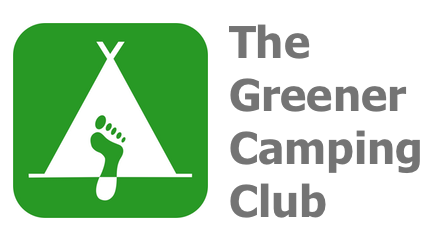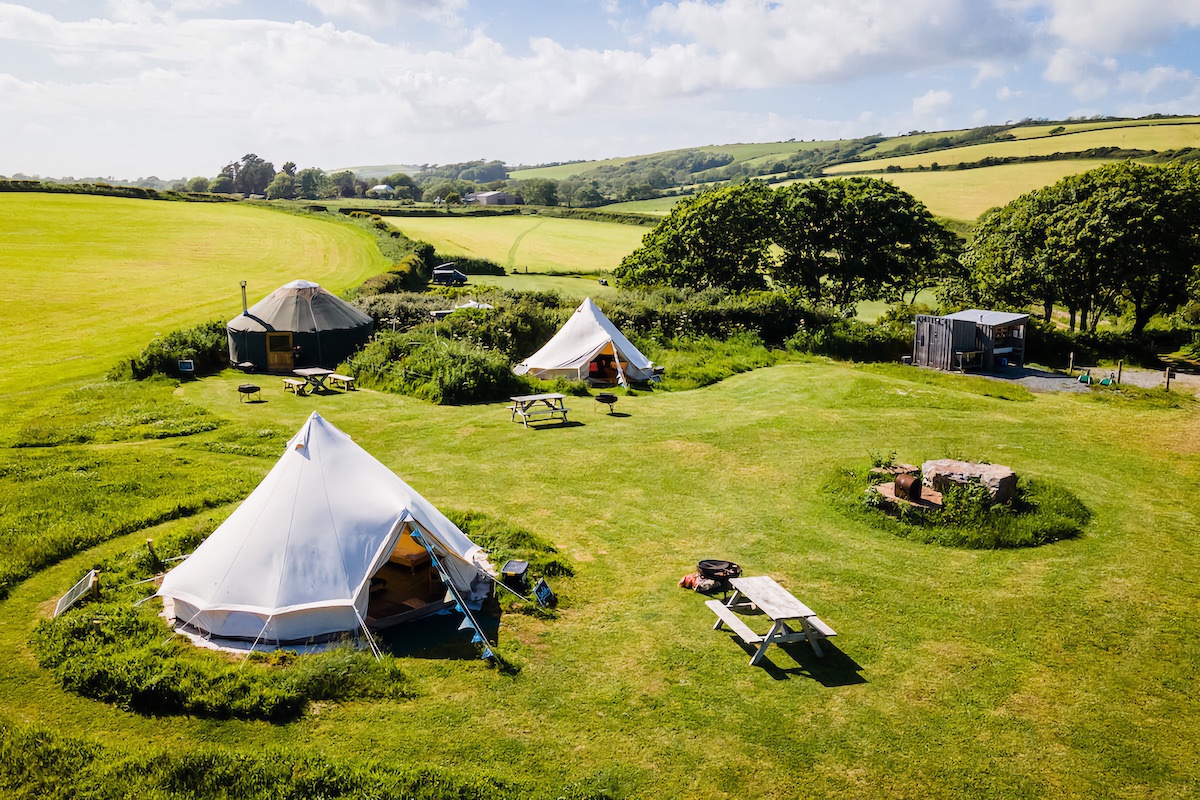Creating a Greener Campsite
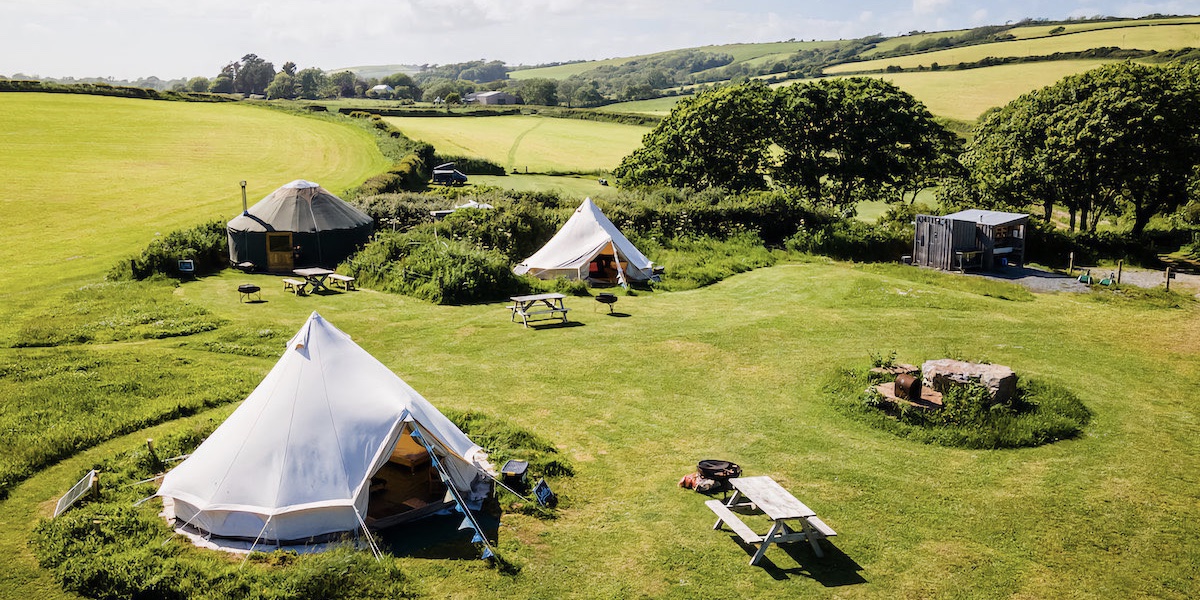
Everything you need to know about starting a camping or glamping site with the Greener Camping Club
Please read before completing the online application form.
Introduction
The Greener Camping Club was established in 2015 with the aim of creating a network of members-only, environmentally responsible campsites. The idea came about when the four founders of the Club, themselves experienced campsite owners, realised there was growing demand from campers who wanted to reflect their passion for helping the environment through the holiday choices they make.
In just a few years the Club has grown to become the UK's third largest members-only camping organisation. Greener Camping Club campsites enjoy higher pitch fees, higher occupancy rates and a much higher percentage of returning visitors when compared to other campsites.
Not only are Greener Camping Club campsites good for the environment, they are good for your business. The Greener Camping Club 'brand' is increasingly associated with the best in small, owner-managed, environmentally-friendly campsites. So, whether you are a landowner wishing to create a lucrative, sustainable, eco-friendly camping business, or an established campsite that would like to enjoy the benefits we offer, the Greener Camping Club is the organisation for you.
What we mean by 'environmentally responsible'
For the Club's thousands of members
It means engaging with and being sensitive to the environment they are camping in; being immersed in the natural experiences of camping - an appreciation and respect for the flora and fauna, campfires, starry skies, new friends and new adventures; supporting the local economy, avoiding waste and recycling everything possible.
For campsite owners - the custodians of the land
It means working with an organisation that appreciates and supports the work that goes into making a nature-friendly holiday destination. It also means carrying on business fairly and ethically, with clear terms & conditions, helpful site rules and great customer service.
What Certification permits
A planning exemption certificate issued by the Greener Camping Club enables you to operate your campsite lawfully, without the need for planning permission.
This is made possible because the Club has been granted exemption licenses by Welsh Government and Natural England. The exemption licenses enable the Club to ‘certificate’ campsites in Wales and England as long as they comply with the legislation and meet or exceed the Club’s environmental and quality criteria.
Certificated campsites can accommodate a maximum five caravans, campervans or motorhomes - and tents up to a number considered suitable for the size and facilities of the site. However, in keeping with our commitment to the environment, as far as the Greener Camping Club is concerned, the maximum number of ‘units’ (ie. tents, caravans etc.) we will certificate, rarely exceeds 15 for a new campsite. The minimum number we will certificate is five units.
What Certification does not permit
Building of permanent facilities
Certification does not permit the building permanent toilet and shower facilities. For this you may need planning permission, or 'change of use' for an existing building such as a barn or other suitable outbuilding. Neither does Certification permit you to undertake any landscaping or civil engineering work. Eg. installing a septic tank. Again, for this you may need planning permission. For work such as this it is your responsibility to check with your local planning authority.
Wedding receptions, parties, concerts
These and all other commercially-based events are outside the scope of the exemption legislation and are therefore not permitted on certificated campsites. Even if you use additional land adjacent to, or close to your designated 'certificated site', because 'events' are not compatible with the spirit of the exempted camping legislation, as far as the Club is concerned, they are not permitted.
Onsite activities
Onsite activities that are specifically for your guests, such as bushcraft and foraging courses, wood carving, tiny shop and 'foody' nights are permitted - but you must discuss your particular activity with us before offering these.
Glamping accommodation
Glamping is well established in the UK holiday market and many campsite owners wish to take advantage of this. The Club can certificate land for glamping accommodation as follows:
Soft glamping accommodation, these are typically canvas covered structures, such as yurts, bell tents and safari tents.
Hard glamping accommodation, these are usually timber clad structures, such as shepherd’s huts and eco-pods - up to a maximum of five units.
Hard glamping units must be on a chassis with wheels and be capable of being quickly uncoupled from any connected services and towed offsite at the end of the camping season. Size limitations apply, so always check with us before proceeding.
Whilst the Club can tell you whether a proposed glamping unit is acceptable, it is your responsibility to confirm with your local planning authority that the unit complies with their interpretation of the exempted camping legislation.
The Club recommends that new sites include an element of camping pitches within the 'glamping' setup. There are several good reasons of this, which we will share with you should you proceed with an application.
Facilities that don’t require planning permission
To avoid the complications of planning permission and to keep costs down, many of the Club’s campsites utilise moveable or temporary structures to house toilets and showers. Facilities must be easily uncoupled from services, such as water, waste and electricity, so that they can be removed from site at the end of the season. Compost toilets are particulary well suited to temporary structures and when properly maintained are well liked by campers. The Club will provide guidance on temporary/moveable toilet and shower facilities should you proceed with an application. Note that hired in chemical toilets are not permitted unless an emergency.
Using an existing building for facilities
If you have a suitable existing building, such as a barn or other agricultural outbuilding, you may be able to get 'change of use' under 'permitted development' for plumbed in toilets and showers.
Chemical toilet disposal points
If you plan to admit caravans and motorhomes to your campsite, you are required to provide a chemical toilet disposal point (CDP). This must be installed in accordance with local Environmental Health regulations. Note that the Club does not permit the use of formaldehyde-based chemicals. Only organic chemicals are permitted.
Ratio of camping units to facilities
The days of queueing for toilets or showers are long past. Today's campers expect plentiful, clean, well maintained facilities. A 'rustic' feel to their design is fine and adds charm to a nature-friendly, off grid campsite. The table below provides a guide to how many toilets, showers and washing up points are required for a given number of camping units. The more you are able to provide, the better your campers will like it.
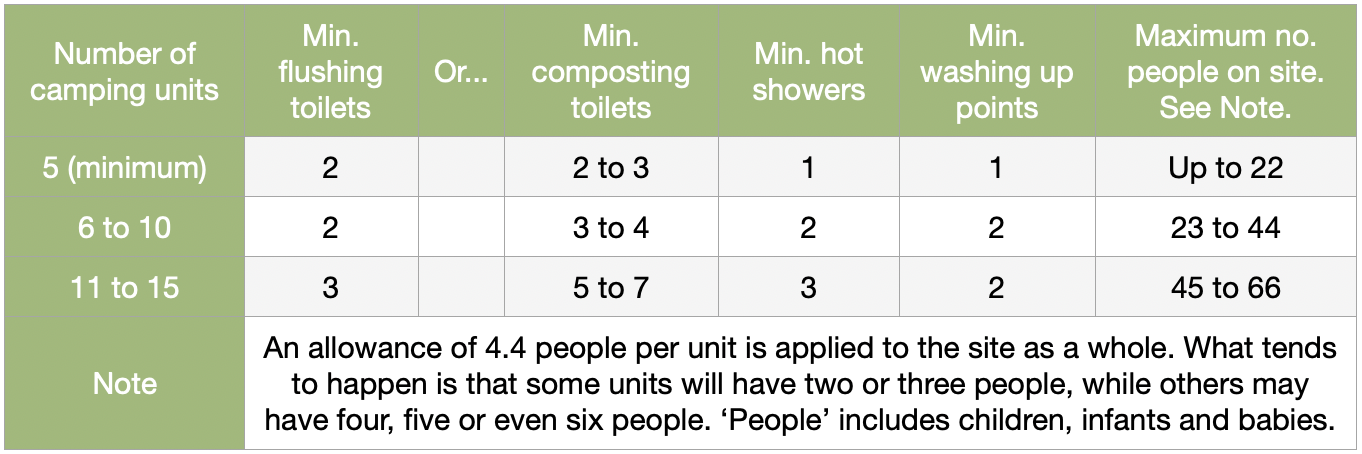
Land suitable for a campsite
The ideal setting for a campsite is a sheltered area of at least one acre, in a peaceful, rural setting, screened by trees or hedge banks, with safe vehicle access, a potable water supply - and the site owner's residence on site.
Highly visible, open sites that are lacking in natural screening - or sites that are close to residential properties and busy roads, are generally not acceptable. However, sites that will quickly improve from tree planting or other natural screening will be considered.
If you live in a national park, or an area of outstanding national beauty, this is not usually a barrier to Certification. If you are within a SSSI you will need to demonstrate that your camping activities will have zero impact on the natural environment. If you are within an Article 4 Direction area, where permitted development rights have been withdrawn, or you have had planning permission refused, or an enforcement notice served, we will not able to certificate you.
If your house is not on, adjacent, or very close to the proposed campsite, you will need to demonstrate how you will properly manage the site day to day.
Membership
Greener Camping Club campsites are for members only. The membership fee is £12. One membership is required per family. The membership year runs from 1st January to 31st December. For campers who join on or after 1st September, membership is valid until 31st December of the following year.
Members are enrolled by the campsite owner at the point of booking, using the Club’s online membership system. Memberships are recorded in the central register and membership e-cards are issued at the press of a button. Each campsite has its own secure online login access. The entire process is fully automated and it takes seconds to sign a new member up.
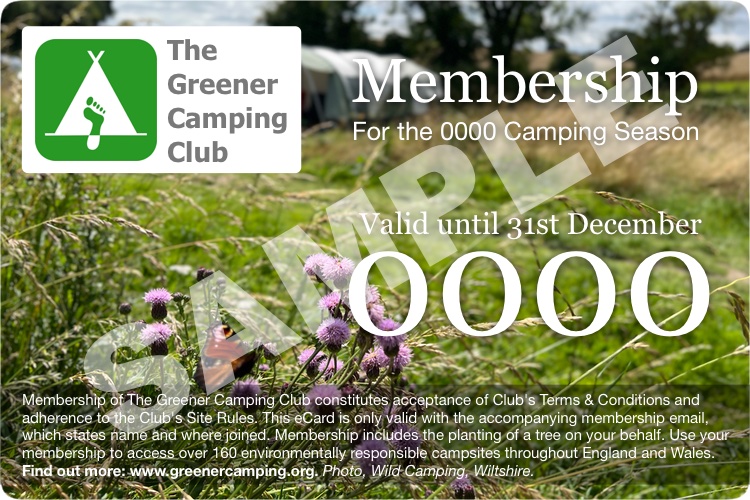
In some instances campers who book with you will already be Club members. In this case membership needs to be validated by the campsite owner by checking the membership register.
Supporting the environment
The Club is committed to a number of environmental projects - and each year at least 15% of membership fee income is used to fund these:
New woodlands through 'Trees for Life'
Trees are essential for people, wildlife and the environment - and through the Club's 'Trees for Life' initiative, a tree is planted for every member when they join, or rejoin the Club. This is not the usual 'green wash' you read about. The trees are distributed to the campsites and planted by the owners. In 2023 alone, around 17,500 trees were planted - equivalent to over 22 acres of new woodland.
Trees equal to the number of members you have joined will be supplied to you during the winter planting season. We understand that not all campsites can accommodate what can sometimes be several hundred new trees each year. If this is the case for you, we can arrange to have your quota of trees planted at a donor campsite.
Wildflower meadow creation
Since 2021 the Club has distributed several kilos of wildflower seeds to its campsites, resulting in the creation of several acres of new wildflower meadows. These provide essential feeding grounds for bees, butterflies and other pollinating insects - not to mention a blaze of summertime colours for camping guests to enjoy.
The Woodland Trust
The Greener Camping Club is a Woodland Trust Corporate Member - helping create, restore and protect UK woodland. This is in addition to our 'Trees for Life' initiative.
Nesting boxes and bat boxes
Each winter we commission a large quantity of nesting boxes and bat boxes, which are then distributed to our campsites.
Donations to environmental & humanitarian causes
The Club makes significant annual donations to supported environmental, wildlife conservation and humanitarian causes. Most recently these have included 'The Ocean Cleanup', 'The Barn Owl Trust' and 'British Red Cross'.
Benefits of Greener Camping Club Certification
The peace of mind from being able operate your campsite lawfully, without the need for planning permission.
Exposure to tens of thousands of discerning Club members - past and present, who seek quiet, eco-friendly campsites - and are prepared to pay a little bit extra for this exclusivity.
Inclusion on the Club’s website, with camping enquiries automatically sent directly to you. All bookings you secure through our marketing channels are commission free.
Start up guidance on such matters as portable/eco facilities, siting of pitches, tree planting schemes and much more.
Ongoing support, with frequent email bulletins on regulatory, health & safety and tourism matters. For urgent matters, our team is just a phone call or email away.
Site Owners Forum, where you can post questions, receive answers to common problems, share ideas and network with fellow site owners.
Being part of an exclusive network of exceptional, eco-friendly campsites that are not just great places to stay - but are passionate about improving the natural environment and making eco-tourism a reality.
Minimal cost of just £100 a year to remain certificated.
Promoting your campsite
The Club actively promotes its certificated campsites through regular mailshots, social media and print advertising. However, it should never be viewed as your sole marketing channel. The Greener Camping Club does not place restrictions on how or where you promote your campsite. You are encouraged to use all appropriate channels including: your own website, camping directory websites, social media, national press, email marketing and blogs.
Online travel agents
The use of online travel agents (OTA's) such as Campsites.co.uk, Pitchup.com and Hipcamp is encouraged as a way to kick start bookings. All you need to do is make it clear at the point of booking that you are a Greener Camping Club members only campsite - and that the membership fee will be added to the camping fee. We will provide instructions about how this is done when your are ready to 'go live'.
Online booking systems
Many of our campsites have dispensed with the services of OTA's and instead generate all their bookings from their own marketing activity. In doing so, several use online booking service providers such as Bedful, InnStyle, Q-Book, AnytimeBooking and FreeToBook.
Website requirements
A website is essential to show off your campsite and to explain that you are certificated by the Greener Camping Club. A FaceBook page, or a listing on Campsites.co.uk, Hipcamp or Pitchup.com is not sufficient. It is also a requirement for the Club’s logo to appear on your 'homepage' and the Club's Information Panel to appear prominently on the prices, booking, or contact page of your website - see below.
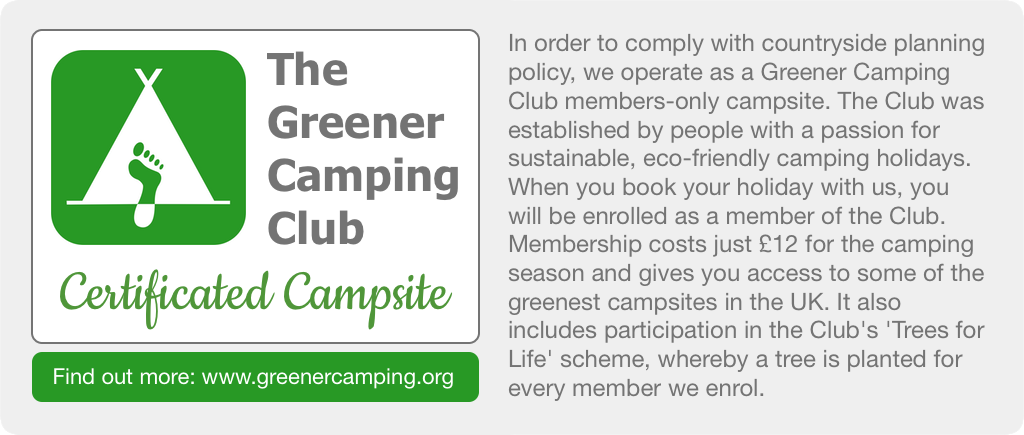
The Greener Camping Club 'brand' has gained considerable traction among campers and the camping industry as a marque of high quality, 'green' campsites. It is therefore beneficial to you to place the Club logo on your home page and elsewhere on your website. Please note: the Club will not issue a certificate until your website is online with the appropriate Club branding.
Existing holiday business
If you already have a website for an existing holiday accommodation business, such as B&B, or self catering, you cannot simply add a camping page to that website. A new website specifically for the campsite is required. Cross links however are permitted. A separate website is highly beneficial in terms of 'search engine optimisation' (SEO), helping to ensure your campsite business is easier to find in search.
Website design service
The Greener Camping Club can provide help with building your website, from a basic 'brochure style' site to a complex, full e-commerce website. Once built, the site is handed over to you for day to day maintenance.
Limitations of Certification
While you are certificated to the Greener Camping Club you cannot be certificated to another exempted camping organisation. Nor can you operate under the '28/60 day rule'. We cannot certificate you if you have an existing campsite operating under full planning on another part of your land.
Fees for Certification
There are two scales of fees, depending upon whether you are applying as a new site, or as a pre-existing certificated site.
For a new site (including sites that have been operating under the 28/60-day rule)
The fee is £300 +VAT, which is payable prior to your site inspection.
For an existing certificated site
If you are already certificated to another exempted camping organisation, the fee is £150 +VAT, which is payable prior to your site inspection.
Mileage charge for site inspection
A mileage charge of 30p per mile applies. This only applies to your first inspection. There is no mileage charge for annual site inspections.
Recurring costs
The only recurring cost is the annual renewal fee of £100 (inc. VAT), which is payable in March when we issue the new season certificates.
Journey to Certification
1. Desktop Assessment
The process starts with a desktop assessment of the information you have provided in the online application form. This enables us to gain an overview of your site and its suitability. During this process we will give you a call.
If at this point we identify potentially affected neighbours, we will not proceed with an inspection until you have spoken to them and received their feed back. This doesn't necessarily stop the application it all depends upon the nature of the feedback.
If your application passes the initial assessment and you would like to proceed, we will make an appointment to conduct the site inspection. At this point, you will be sent an invoice for the Certification fee.
2. Site Inspection
The site inspection will be undertaken by one or sometimes two Club Officers, who are themselves, experienced campsite owners. They will assess the proposed location of the campsite, the overall setting, vehicle access and other practical issues. Proximity to neighbours, roads and hazards are all taken into consideration. They will inspect your existing facilities, or discuss and give advice on planned facilities.
They will discuss who your affected neighbours are (if any) and request names and addresses. The site inspection typically lasts about two hours. There’s a lot to discuss and much valuable information will be shared with you. Following the site inspection, you will receive a follow-up report, confirming what was discussed and reccomendations for any changes that may need to be made to meet the Club’s criteria.
Very occasionally, as a result of the site inspection, it becomes clear that the proposed site is not suitable for a Greener Camping Club campsite. The reasons vary - but could be because of the close proximity of neighbouring properties, a shared access issue, excessive road noise, dangerous access from the highway, or important information withheld prior to the inspection. If this is the case, depending on the circumstances, a partial refund of the Certification fee will be made.
It is important that in order to avoid wasted time and unnecessary expense, you make us aware of potential issues that may affect your application.
Assuming you wish to continue with the application...
3. Consultation with Local Planning Authority and Neighbours
For new campsites
We write to your local planning authority (LPA) detailing the proposal and stating the Club’s intention to issue an exemption certificate for camping and caravanning. We invite their comments and will consider their views and concerns. Very occasionally the LPA may have a strong and valid reason why the site cannot be certificated - and as a result we may have to withdraw the application.
Simultaneously, we will write to affected neighbours (if any), detailing the proposal and inviting their comments. If there are unforseen objections from your neighbours, we encourage you to speak with them.
The Greener Camping Club does not arbitrate between applicants and neighbours - so unless agreement can be reached between you and your neighbours we will be compelled to withdraw the application.
All parties are given 28 days to respond. The vast majority of Greener Camping Club applications are acceptable to LPA’s and neighbouring properties. However, it doesn’t always go smoothly and we will allow up to 12 weeks for this stage, beyond which we will withdraw the application.
For existing certificated campsites only
Re-certification from another club to the Greener Camping Club is usually very straightforward. Assuming you meet our criteria, we write to your LPA informing them of the change and issue our Conditional Offer of Certification. You will also be required to write to your original club informing them of your decision to leave and will need to include the Club's logo and information panel on your website.
4. Conditional Offer and Acceptance
Assuming your LPA and neighbouring properties have no valid objection to your plans we will issue a Conditional Offer of Certification. Subject to your acceptance of the conditions set out in the offer you could soon be up and running! The conditions typically include the maximum number of units permited, the length of time the campsite can be open and the completion of agreed works. We will then issue your current year exemption certificate and send you a Greener Camping Club sign to put at the entrance to your campsite.
You should not commence any work, or make financial commitments until you have received, agreed, signed and returned the conditional offer.
And once you are onboard
The Greener Camping Club team is here to provide help, guidance and support on all aspects of your new camping enterprise. We are never more than a phone call or email away.
Important supporting documents:
View example site plan.
View glossary of terms used in this document.
View the Club's Terms & Conditions (opens in a new tab).
Ready to apply?
Updated 30/05/2025
